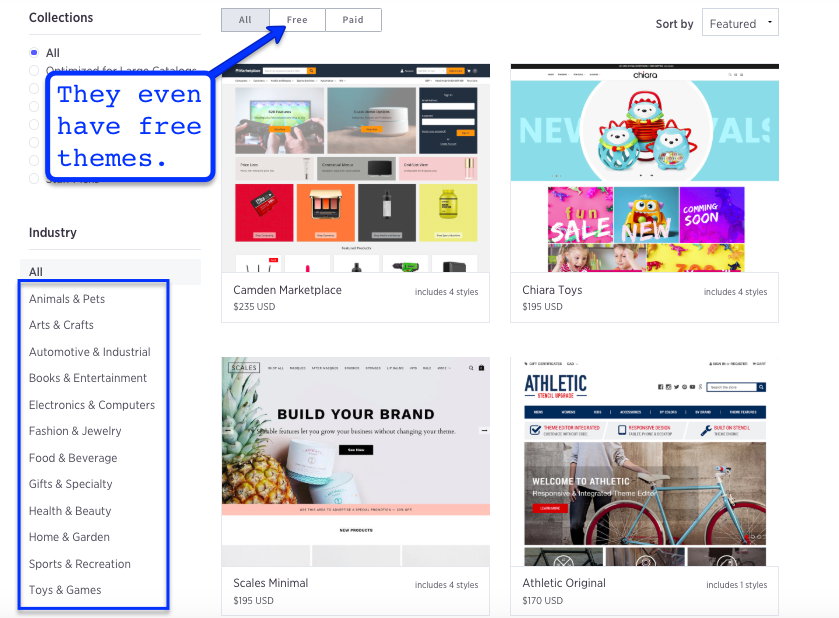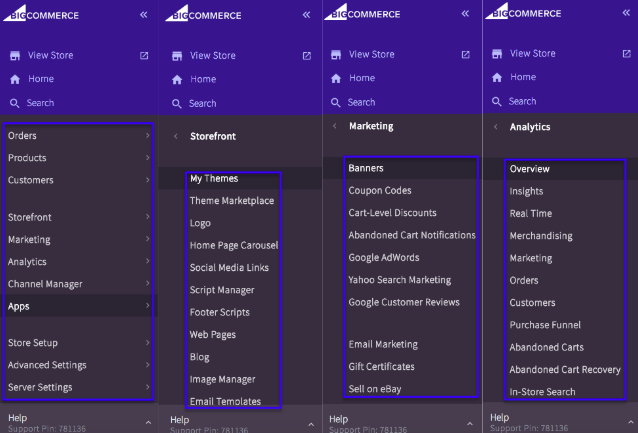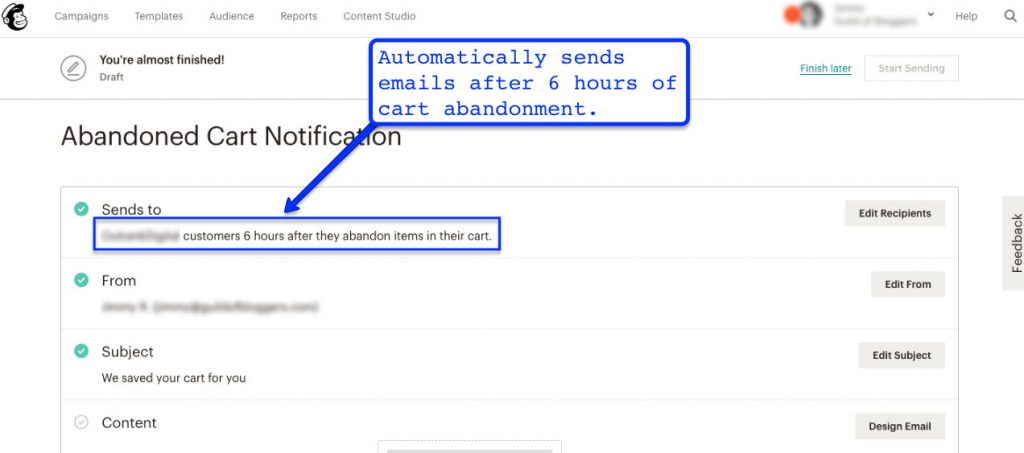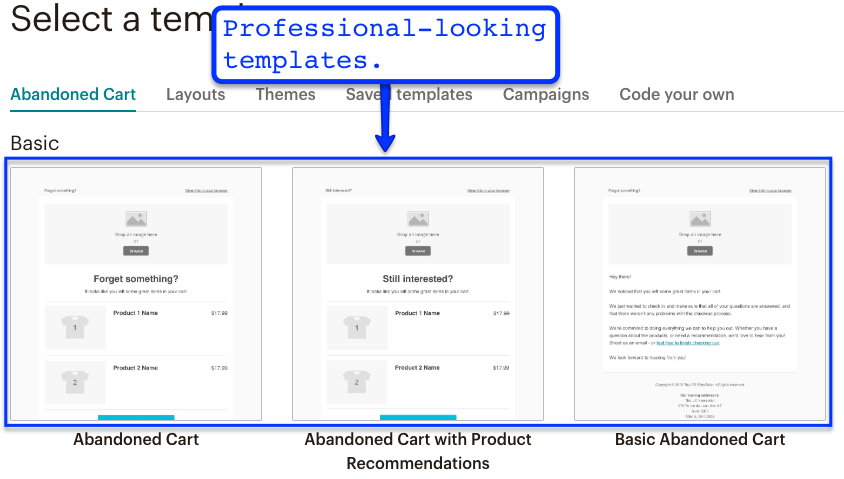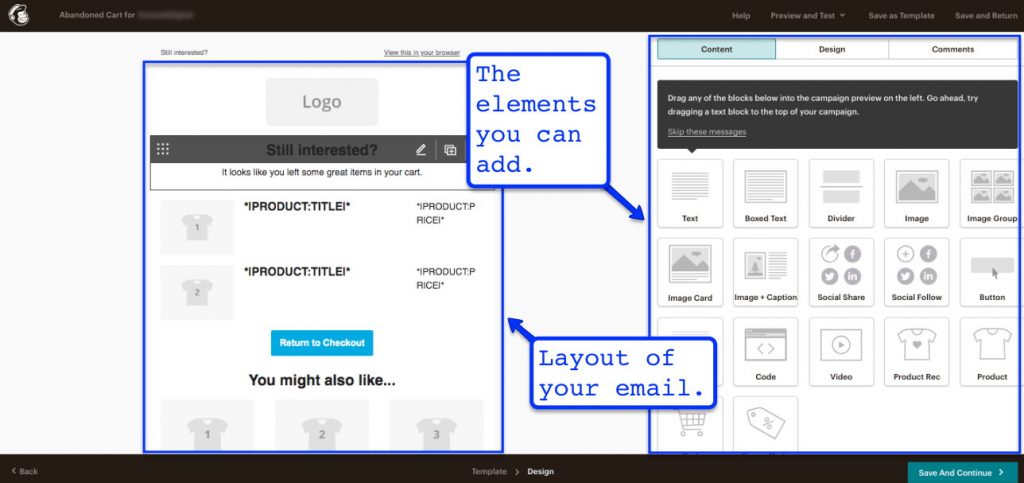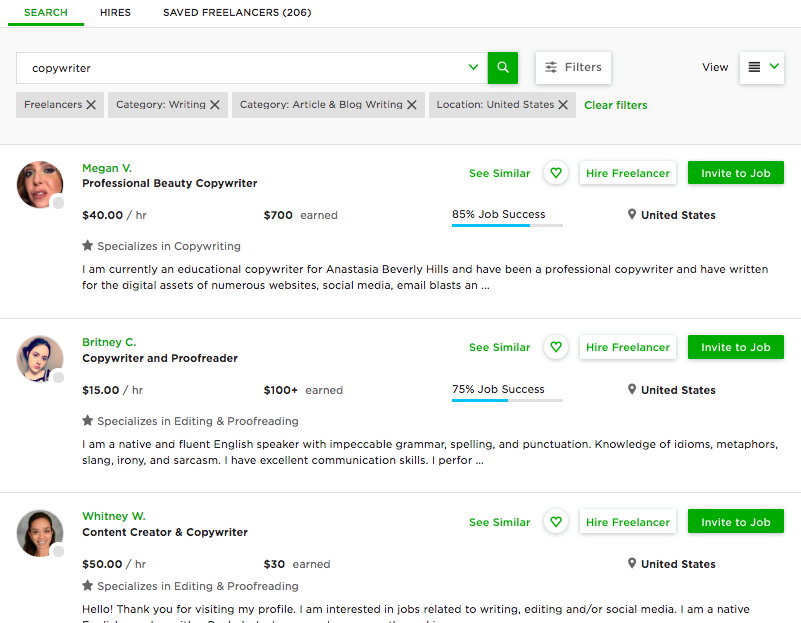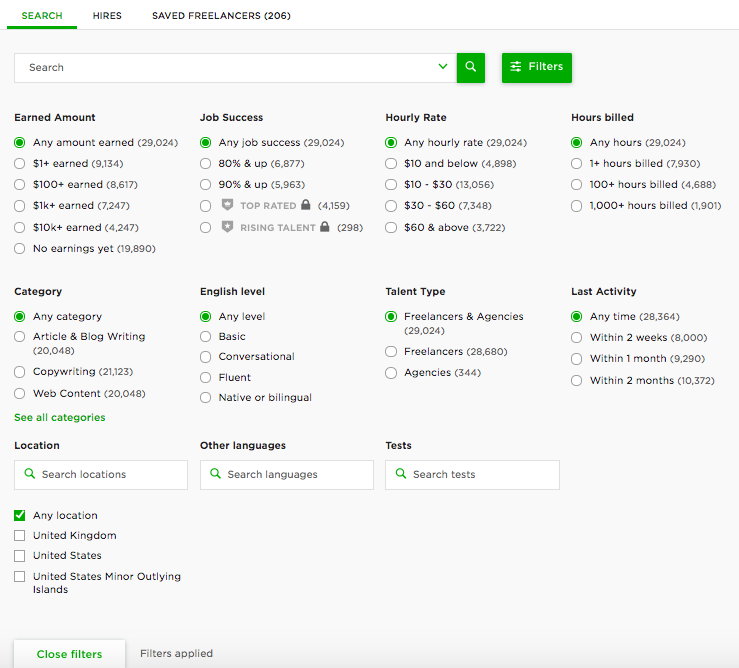And if you can’t manage them properly by transitioning your eCommerce store from being able to handle a handful of orders per week to processing thousands per day, you’ll be in trouble — big trouble. Chances are, if your scaling process is poorly handled, you’ll be leaking out sales. There are going to be people who, instead of buying your products, won’t be able to do so because of some problem they’re experiencing on your site — all because you weren’t able to scale properly.
When it’s the right time to scale your business, you need to go for it. Otherwise, things will get problematic for you and your customers. That is why, in this guide, we’re going to share with you three tried and tested tips to scale your eCommerce business. Let’s hop right in.
1. Use a website builder
When scaling your eCommerce business, there are a plethora of reasons why you should go for website builders over custom-built sites. For one thing, it is far cheaper to use an eCommerce website builder. You can spend less than $100 (or a few hundred dollars, depending on what you need) and still be able to roll out a stunning online store. If you try to have a custom site built, on the other hand, you might have to spend thousands of dollars. That doesn’t even include the headache of collaborating with a website designer/developer and the possible security or functionality gaps of your store. And then there’s upkeep. The good news is when your store is built using a website builder, “affordable” doesn’t necessarily mean defective or lacking in features. It’s quite the opposite, actually. To illustrate my point, try signing up to a reliable eCommerce website builder to see what kind of features you can get. Here are some website themes that BigCommerce has to offer, a trusted eCommerce company that’s committed to helping merchants sell more.
Their premade website themes look awesome, don’t they? And those aren’t their only themes, by the way. If you keep scrolling, there are several more professional-looking themes you can choose from. If you’ll look into BigCommerce’s dashboard, the platform is chock-full of features to help you sell more.
If you were to have a website with those features coded from scratch, you’d likely need to spend upwards of $50,000 — and it would likely take several months before your site is done. With a website builder, you gain access to these epic features for far less. Not only that, but you’ll also get premium support from a dedicated team. With website builders, you’re basically spending far less to gain more. That’s a pretty sweet deal if you ask me.
2. Think automation
The more you automate, the more productive you become. You’ll be able to focus on the things that have a bigger and longer-lasting impact on your business. Not only that, but you’ll be able to manage your entire operation and not have to deal with the nitty-gritty tasks. To show you how crucial automation can be, let’s look at how it can help you with saving your abandoned carts. When people abandon their carts in your website before checking out, you need to have a system in place that will automatically send them an email reminding them to come back and complete their purchases. As you can probably imagine, if your website has thousands of visitors and you have hundreds of abandoned carts, you can’t send email follow-ups by yourself manually — that’d be a serious time-suck, the messages would likely often reach shoppers too late to have any impact, and you might make a nasty mistake here or there, Instead of having to send the emails one by one, you can integrate plugins to your store to do the emails for you automatically. MailChimp has such a feature.
As you can see, the condition is set to where MailChimp will automatically send emails after six hours to people who abandoned their carts. You can even customize the email content that will be sent to your would-be customers. What’s more, you don’t have to create your email from scratch, as MailChimp has templates that you can use. Check these out.
Tweaking the templates is also fairly easy to do. Here’s how their editor looks.
With the help of apps and other features that your website builder hopefully offers, you’ll be able to set up several automation processes to help you scale your business. With automated workflows in place, you won’t have to deal with the menial, repetitive tasks. You can focus on the bigger picture and growing your business.
3. Outsource
I cannot tell you how crucial outsourcing is when it comes to scaling your eCommerce business. Let’s face it: While there are online tools, templates and automation apps that you can use to help you finish your tasks faster, you’re going to need a person, one way or the other, to do some aspects of your business. Pretty much like, how you’ll need 10 drivers if you have 10 bulldozers — that is if you want to maximize the capacity of all your bulldozers at the same time. You want to maximize the capacity of your eCommerce business, don’t you? So, to help you find a reliable freelancer to work with, you can turn to online platforms like Upwork. Supposing you need a copywriter who can help you with product description or copy for your landing pages, you can start looking for freelancers in the platform.
In case you didn’t notice, I added filters to my search. The platform has quite an exhaustive list of categories on its filters to help its users find their ideal freelancer.
With freelance marketplaces like Upwork, you should be able to find a reliable, skilled, and competent freelancer to help you run your eCommerce business. As you build a winning team, you’ll be able to scale your business to greater heights. And since your team is made up of capable people, you can be confident that your eCommerce business is running as it should be, without your getting stressing out on the small things.
What helps you scale?
What are some of the best tips you can share with our readers when it comes to scaling their eCommerce businesses? While the tips above are certainly valuable, there are countless other methodologies you can use to help you with that end. If you have tricks up your sleeve when it comes to scaling an eCommerce business, then feel free to share them in the comments section below.

